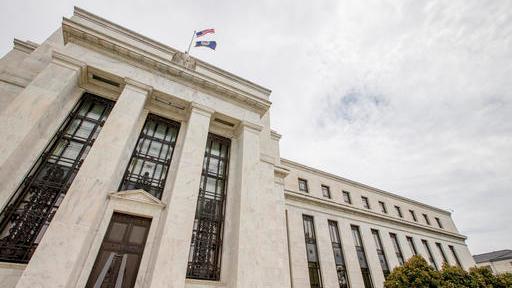The Fed set to cut rates: Why you should care
Oil traders are on pins and needles Wednesday awaiting the latest Fed decision. To cut rates or not, that is the question. Why do oil traders care?
It’s not like the Fed can print oil like they print money ... or can they? Well, they sort of can. While most expect that the Fed will cut rates by a quarter point, some expect it could by as much as a half a point. The reality is that whatever decision the Fed makes, it will impact oil prices, gas prices and even the outlook for oil production.
Well perhaps barrels of oil won’t come through the printing presses, but movement on monetary policy can impact the amount of oil on the market -- and it can have a major impact on crude oil demand. If the Fed cuts rates, it could increase what you pay for gas and even impact the cost of goods because of increased costs for transporting goods -- it takes energy to transport everything we consume.
If the Fed raises interest rates, it typically slows market activity. Companies with tighter capital requirements will slow economic activity. If these companies pull back on investment at the same time, demand for the oil they consume will fall.
At the same time oil producers then might cut back on production, depending on how severely the manufacturers cut back producing the products we all consume. Many oil drillers are dependent on borrowing money. If rates go up, they will be forced to borrow less, thereby reducing their drilling expectations and the amount of oil on the market. So the Fed, by raising rates, can actually remove barrels from the market.
One argument for an interest rate cut right now is that the economy may be slowing and we are seeing a potential sign of that in the oil patch. Some U.S. drillers are cutting back on drilling activity because they can’t service their debt to the banks. The interest payments to the bank are too high. A lower interest rate may allow some drillers to refinance operations and perhaps start to drill again. In fact if the Fed cuts rates, it could add barrels to the market (which would be a good thing, because lower interest rates also typically increase oil demand.)
CLICK HERE FOR THE FOX BUSINESS APP
That is the real reason the Fed cuts rates: to stir economic activity and in this case, start to reignite inflation in a disinflationary environment. That anticipated economic activity comes with an increase in oil demand. With more demand comes higher prices.
The bigger the rate cut, the more bullish it will be for oil, a smaller cut or no cut -- or a rate increase -- is usually bearish for oil.
Phil Flynn is senior energy analyst at The PRICE Futures Group and a Fox Business Network contributor. He is one of the world's leading market analysts, providing individual investors, professional traders, and institutions with up-to-the-minute investment and risk management insight into global petroleum, gasoline, and energy markets. His precise and timely forecasts have come to be in great demand by industry and media worldwide and his impressive career goes back almost three decades, gaining attention with his market calls and energetic personality as writer of The Energy Report. You can contact Phil by phone at (888) 264-5665 or by email at pflynn@pricegroup.com.




















